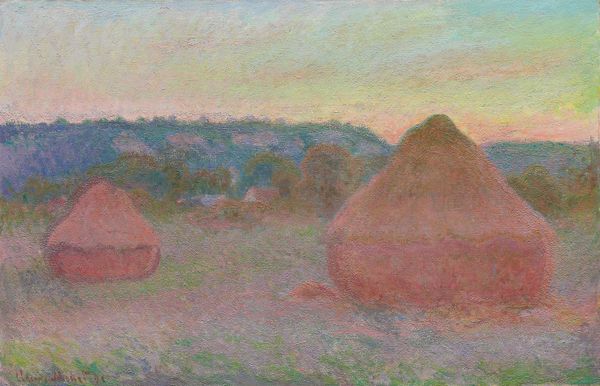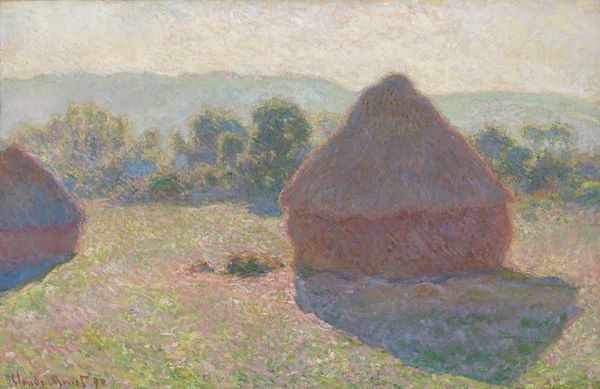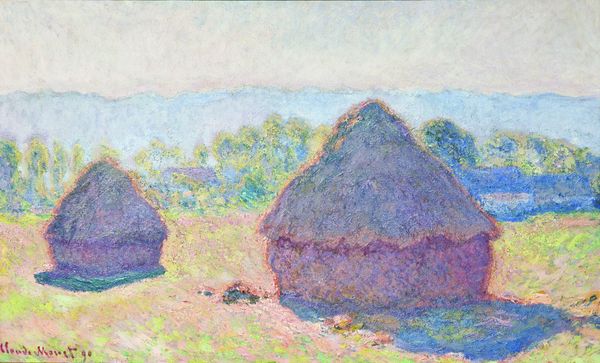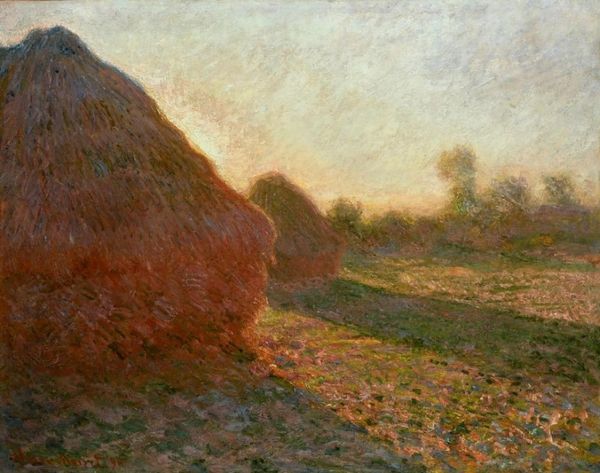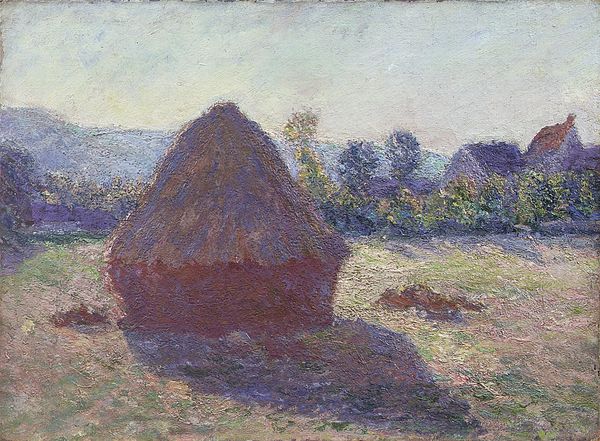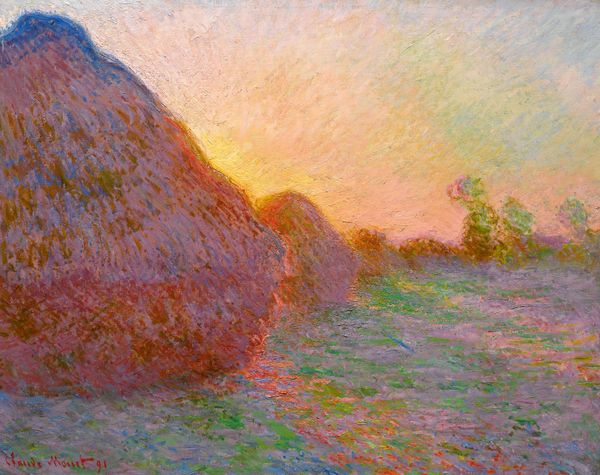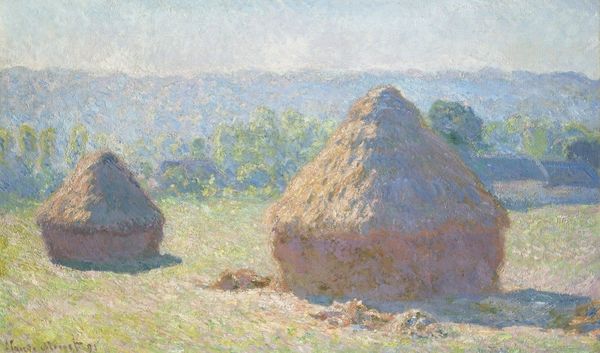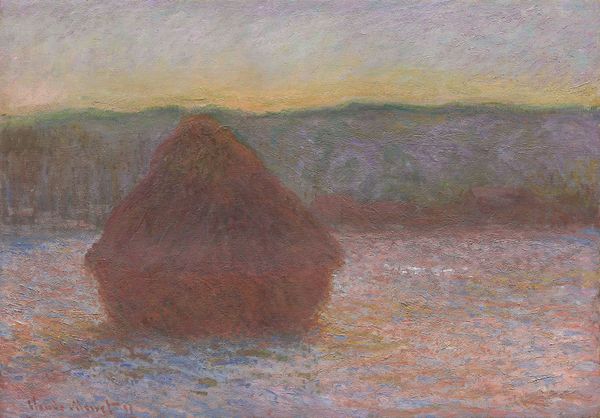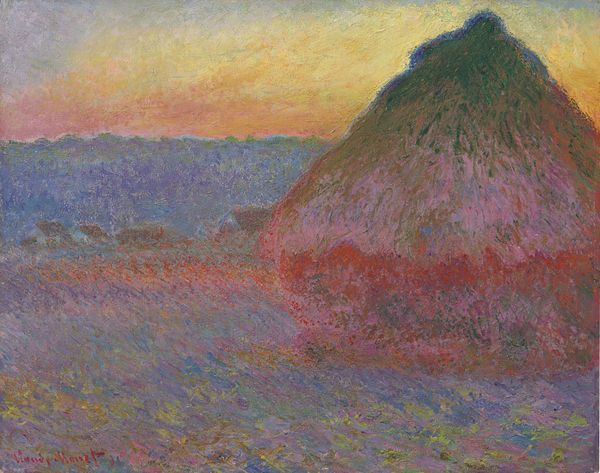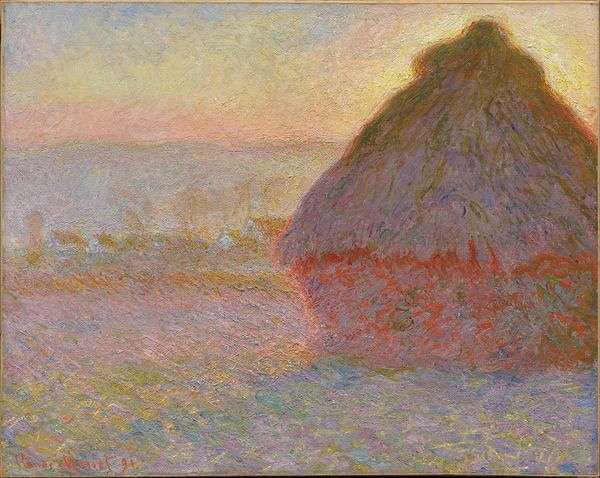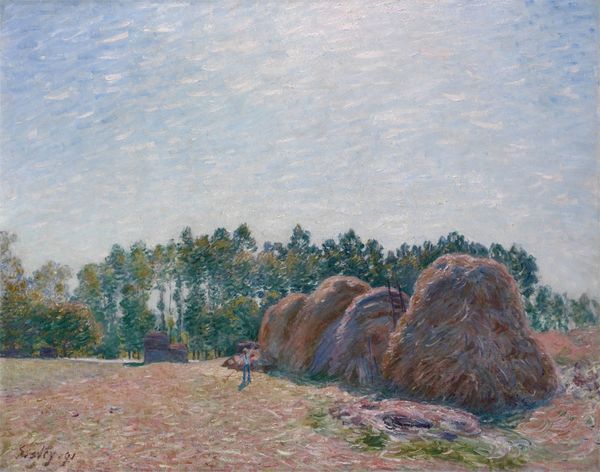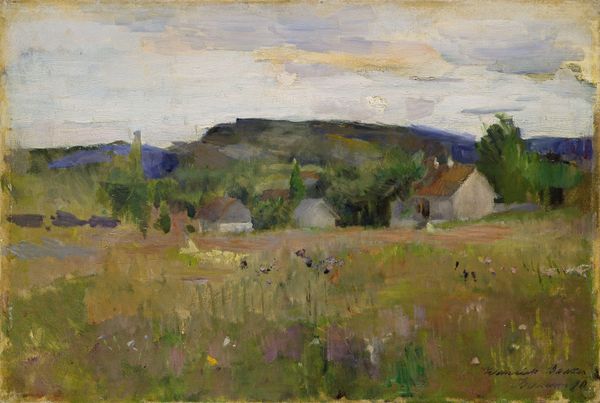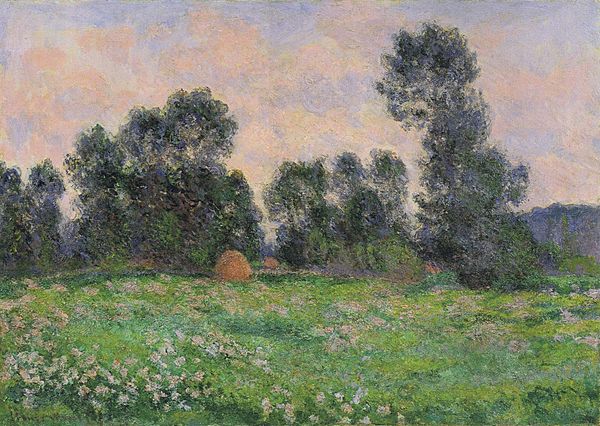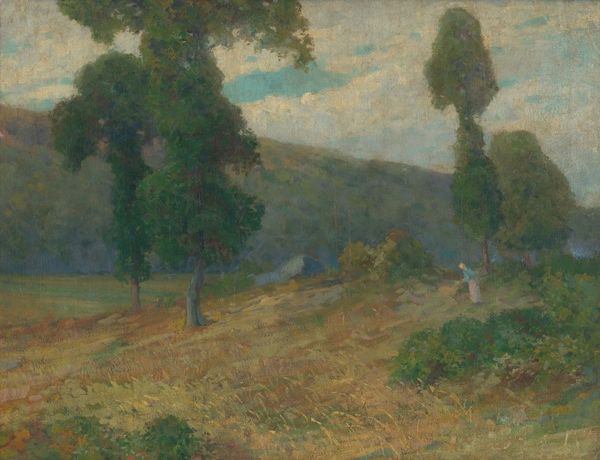
painting, plein-air, oil-paint, impasto
#
painting
#
impressionism
#
plein-air
#
oil-paint
#
landscape
#
impressionist landscape
#
nature
#
impasto
#
post-impressionism
Copyright: Public Domain: Artvee
Editor: This is Claude Monet's "Stacks of Wheat," painted between 1890 and 1891, using oil paint. The colors are so soft, and the way the light catches the stacks is really beautiful. What do you see in this piece? Curator: The initial draw is, undoubtedly, the interplay of light and color. Monet isn’t merely representing stacks of wheat. Note how the composition relies on the subtle modulations of hue and value to define form, light, and depth. Look closely at the texture; it's almost sculptural, isn't it? The impasto technique lends a physicality that draws the eye. Editor: Absolutely! The texture is what really caught my eye, along with the variations of blue and pink throughout, even in the wheat stacks. Does this choice reveal a certain theoretical position on the part of Monet? Curator: Precisely. The emphasis on the optical experience, the decomposition of light into its constituent colors, aligns with the broader Impressionist project. He almost wants us to disregard what these forms are and instead notice how the application of pigment functions. But are we to disregard that which he paints so masterfully? Editor: Good point. So it's less about the wheat and more about how he *sees* the wheat. It's fascinating how much we can analyze simply by looking at the paint itself! Curator: Indeed. Through careful consideration of brushstrokes, color theory, and compositional elements, we start to understand his larger artistic project. Editor: I see what you mean, focusing on those qualities first before moving outward and interpreting those aspects. Thank you for that! Curator: My pleasure. Now you’ll have to share what insights you bring with other works we review!
Comments
No comments
Be the first to comment and join the conversation on the ultimate creative platform.
